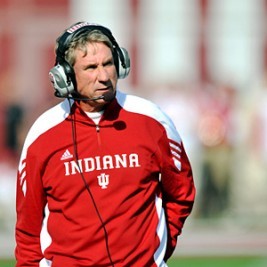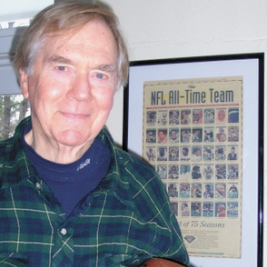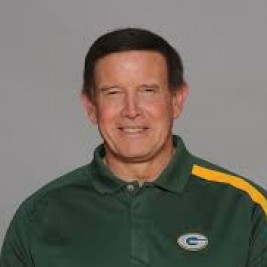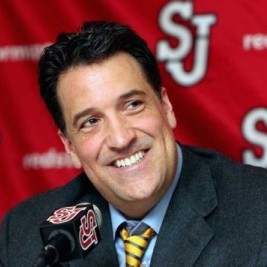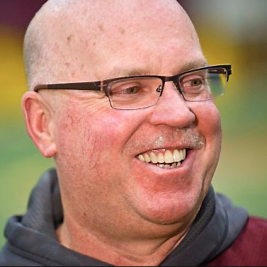
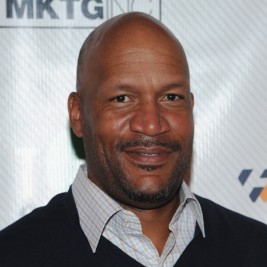
Corporate Appearances, Speaking Engagements, Autograph Signings, Endorsements, VIP Meet & Greets, Store Grand Openings
Book Ron Harper for a Speaking Engagement
Businesses, Non-profit organizations, event planners and companies across the country have worked closely with our booking agents to hire Ron Harper for a speaking engagements, guest appearances, product endorsements and corporate events. Many of those same clients have continued to turn to our speakers bureau as we can easily align Ron Harper’s availability with their upcoming seminar, gala, annual conference, corporate function, and grand opening. Our close relationship with Ron Harper’s booking agent and management team further enables us to provide inquiring clients with Ron Harper’s speaking fee and appearance cost.
If your goal is to hire Ron Harper to be your next keynote speaker or to be the next brand ambassador our celebrity speakers bureau can assist. If Ron Harper’s booking fee is outside your companies budget or your unable to align with his appearance availability, our booking agents can provide you a list of talent that aligns with your event theme, budget and event date.
Ronald "Ron" Harper is a retired American professional basketball player whose career spanned from 1986 to 2001 with four teams in the National Basketball Association.
Harper was selected in the first round in the 1986 NBA draft by the Cleveland Cavaliers. Harper made his NBA debut on November 1, 1986. He broke 30 points in just his sixth game, with 34 against the Sacramento Kings on November 11, 1986. He scored a season-high 40 points against the Boston Celtics on February 4, 1987 and had one of his finest all-around games on February 10, 1987 against the New York Knicks with 25 points, 16 rebounds, four assists and five steals Harper started all 82 games and averaged 22.9 points per game and 4.8 rebounds per game along with 4.8 assists and 2.5 steals. He placed second in Rookie of the Year balloting behind Chuck Person of the Indiana Pacers. In his second season, he was limited to 57 games due to a severely sprained ankle suffered in the second game of the season that kept him out until late December. For the season, he averaged 15.4 ppg. The Cavaliers made the NBA playoffs, but were eliminated by the Chicago Bulls, three games to two. The following season, 1988-89, he again started all 82 games, averaging 18.6 ppg, 5.0 rpg, 5.3 assists and 2.3 steals as the Cavaliers advanced to the NBA playoffs, where they were eliminated in the first round, again by the Chicago Bulls three games to two, this time with a one-point loss in game 5 in Chicago. In his fourth season, 1989-90, after seven games with the Cavaliers, on November 16, 1989 he was traded to the Los Angeles Clippers.
Harper started all 28 games he played for the Clippers, but his season was cut short by a serious right knee injury suffered in a game in January 1990. Diagnosed with both a torn anterior cruciate ligament and torn cartilage, he underwent surgery. For the 1989-90 season overall, he averaged 22.8 ppg, 5.9 rpg, 5.2 assists, 2.3 steals and a career-high 1.2 blocks per game. His season was highlighted by back-to-back 39-point games in December 1989 wins over the Denver Nuggets and the Indiana Pacers. In his next season, 1990-91, he was limited to 39 games, but still posted averages of 19.6 ppg and 4.8 rpg along with 5.4 assists and 1.7 steals as the Clippers advanced to the NBA playoffs, where they were eliminated three games to two by the Utah Jazz. By 1991-92, his sixth NBA season, he bounced back to start all 82 games, averaging 18.2 ppg, 5.5 rpg, 5.1 assists and 1.9 steals. In 1992-93, in 80 games, Harper averaged 18.0 ppg, 5.3 rpg, 4.5 assists and 2.2 steals. The Clippers again made the playoffs, but yet again Harper's team was eliminated in the first round, this time three games to two by the Houston Rockets. In 1993-94, his fourth full season with the Clippers and eighth in the NBA, he played and started in 75 games, averaging 20.1 ppg, 6.1 rpg, 4.6 assists and 1.9 steals. On March 11, 1994, he tallied a triple-double with 26 points, 10 rebounds and 10 assists along with six steals in a win over the Dallas Mavericks. Two nights later, he came within one assist of duplicating the feat, with 39 points, 11 rebounds, nine assists plus another six steals in a win over the Golden State Warriors.
On September 15, 1994, Harper signed a lucrative free agent deal with the Bulls, who were rebuilding following the first retirement of Michael Jordan. Harper found his niche with the Bulls upon Jordan's return, eventually becoming a fan favorite by reinventing himself as a big perimeter defender, ball handler, and mid-range scorer. In his initial season in Chicago, 1994-95, Harper started 53 of the 77 games he played, although his minutes dipped to 19.9 per game and he averaged a then-career low of 6.9 ppg. For the first time in Harper's career, his team advanced past the first round of the NBA playoffs, as the Bulls defeated the Charlotte Hornets three games to one before falling to the Orlando Magic four games to two. In 1995-96, Harper's 10th NBA season, he played in and started 80 games, with his playing time increasing to 23.6 minutes per game and his scoring average to 7.4 ppg. It was a record-setting season for the Bulls as the team, coached by Phil Jackson and led by Jordan and Scottie Pippen and with Harper playing a key role, had an NBA all-time best record of 72-10, then defeated the Miami Heat, New York Knicks, and Orlando Magic in the first three rounds of the NBA Playoffs en rote to winning the NBA championship four games to two over the Seattle SuperSonics. In 1996-97, he played in 76 games, starting 74 and averaging 6.3 ppg. The Bulls had another dominant regular season with a record of 69-13 as they defeated the Washington Bullets, Atlanta Hawks and Miami Heat in the first three rounds of the NBA playoffs en rote to winning their second consecutive NBA crown, this time four games to two over the Utah Jazz. In 1997-98, Harper's 12th NBA season, he started all 82 games for the Bulls, increasing his minutes per game to 27.9 and his scoring average to 9.3 ppg. The Bulls had a regular-season record of 62-20, defeated the New Jersey Nets, Charlotte Hornets and Indiana Pacers in the first three rounds of the playoffs en rote to winning their third consecutive NBA title, again four games to two over the Jazz. Harper played his final season with the Bulls during the lockout-shortened 1998-99 NBA season. With the Bulls roster depleted due to the retirement of Michael Jordan, as well as the losses of Scottie Pippen and Dennis Rodman, the Bulls floundered to a 13-37 record. Harper played 35 games, starting all of them. He finished second on the team with 11.2 ppg. In five years with the Bulls, he averaged about 25 minutes per game, averaging between 6.3 and 11.2 ppg during those seasons.
After being released by the Bulls prior to the 1999-2000 season, on October 13, 1999, he signed a two-year contract as a free agent with the Los Angeles Lakers and his former Bulls coach, Phil Jackson. During the 1999-2000 season, Harper started 78 of 80 games playing much the same role as he did for the Bulls, averaging 7.0 ppg and finishing second on the team in steals behind Kobe Bryant. Led by Bryant and Shaquille O'Neal, the Lakers won 67 games and secured the league's best record. In the Western Conference playoffs, they defeated the Sacramento Kings, the Phoenix Suns and the Portland Trail Blazers. In the final minute of game 3 in Portland, Harper caught a pass from Bryant in the left corner and sank a 19-foot jump shot with 29.9 seconds remaining to give the Lakers a 93-91 lead. On the final play of the game, Harper helped Bryant block a shot by Arvydas Sabonis to seal the Lakers' victory. The Lakers would win the series in seven games to set up a match-up with the Indiana Pacers in the 2000 NBA Finals. In game 2, Bryant sprained his ankle and left the game. Harper and Glen Rice picked up the slack with 21 points apiece to help the Lakers take a 2-0 lead. The Lakers would go on to the win the NBA championship over the Pacers four games to two. Harper started all 23 games in the postseason and averaged 8.6 points per game, earning his fourth NBA championship ring. The 2000-2001 season was Harper's 15th and final NBA season. Injuries limited him to 47 games. By season's end, Derek Fisher had taken over the starting point guard slot, and Harper would only play in six games during the playoffs. The Lakers reached the 2001 NBA Finals, where they faced the Philadelphia 76ers. Following the Sixers' win in game 1, the Lakers won games 2 and 3. In game 4, Harper made crucial shots on the way to eight points, his best point total for the series. The Lakers won games 4 and game 5 to win their second straight NBA championship. It earned Harper his fifth NBA championship ring in a six-year span.

Let our team of booking agents help create a memorable experience with hiring Ron Harper for your store grand opening, golf outing, trade show booth or corporate outing.
NOPACTalent acts as a Celebrity Speakers Bureau and Athlete Booking agency for corporate functions, appearances, private events and speaking engagements. NOPACTalent does not claim or represent itself as Ron Harper’s speakers bureau, agent, manager or management company for Ron Harper or any celebrity on this website. NOPACTalent represents organizations seeking to hire motivational speakers, athletes, celebrities and entertainers for private corporate events, celebrity endorsements, personal appearances, and speaking engagements.



